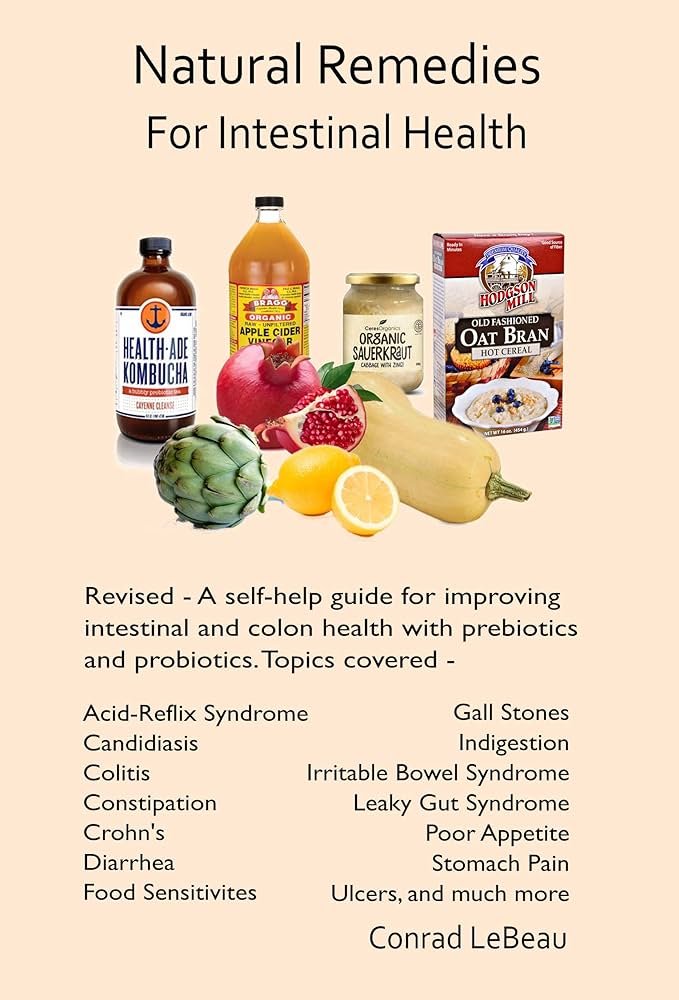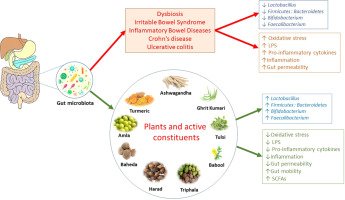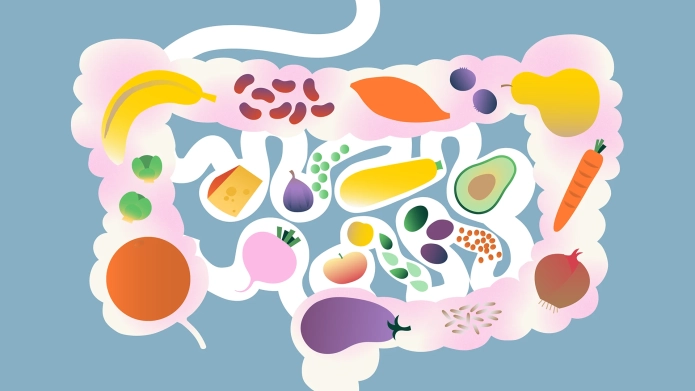Concise Summary
Herbal and natural remedies for gut health are gaining popularity in the U.S. due to their ability to improve digestion, support immunity, and restore microbial balance. From ginger and peppermint to fermented foods and herbal teas, these remedies offer safe, evidence-based solutions. Americans are increasingly adopting natural approaches alongside conventional medicine to manage bloating, constipation, and gut inflammation.
Introduction: Why Natural Remedies Are Trending in Gut Health
Gut health has become a key component of overall wellness in the U.S., with nearly 70 million Americans experiencing digestive disorders annually (NIH, 2023). While conventional medicine remains important, a growing number of consumers seek herbal and natural solutions that reduce side effects, enhance gut flora, and provide long-term digestive support.
Herbal remedies, probiotics from natural foods, and plant-based fibers are reshaping how Americans manage bloating, constipation, diarrhea, and general digestive discomfort. Celebrities, nutritionists, and wellness influencers are openly endorsing these methods, further fueling their popularity.
Understanding the Role of Herbal Remedies in Gut Health
Herbal remedies work by supporting digestion, reducing inflammation, and fostering a balanced microbiome. Unlike pharmaceuticals, they often provide mild but consistent support with fewer adverse effects.
- Mechanisms:
- Stimulating digestive enzymes
- Supporting beneficial gut bacteria
- Reducing gut inflammation
- Regulating bowel movements
Real-life Example: A 32-year-old teacher in Chicago began drinking peppermint and ginger tea daily. Within weeks, she reported fewer bloating episodes and smoother digestion, highlighting how natural remedies can complement lifestyle changes.

Popular Herbal Remedies for Digestive Wellness
1. Ginger
Ginger has anti-inflammatory and carminative properties, making it ideal for bloating, nausea, and general digestive discomfort.
- Usage: Fresh ginger tea, powdered supplements, or raw slices
- Example: Ginger chews or teas are increasingly available in U.S. supermarkets and wellness cafes
2. Peppermint
Peppermint oil and leaves relax intestinal muscles and alleviate IBS symptoms.
- Usage: Peppermint tea, enteric-coated peppermint oil capsules
- Scientific Insight: Studies show peppermint oil reduces abdominal pain and improves bowel regularity in adults with IBS
3. Chamomile
Chamomile tea soothes gut inflammation, supports digestion, and may reduce bloating and gas.
- Usage: Brewed tea or capsules
- Example: Many Americans drink chamomile nightly to calm digestion and promote sleep
4. Fennel Seeds
Fennel seeds reduce gas, bloating, and indigestion by relaxing gastrointestinal muscles.
- Usage: Chew seeds after meals or brew as tea
- Cultural Note: Fennel has been used traditionally in Indian and Mediterranean diets for centuries
5. Turmeric
Turmeric contains curcumin, a potent anti-inflammatory compound supporting gut lining and reducing oxidative stress.
- Usage: Turmeric lattes, capsules, or added to meals
- Example: A New York-based nutritionist recommends turmeric supplementation for patients with mild IBS and inflammation
6. Licorice Root
Licorice root may protect the stomach lining and reduce symptoms of acid reflux and ulcers.
- Usage: Tea, tinctures, or DGL (deglycyrrhizinated) supplements
- Note: DGL forms are preferred to avoid potential side effects like high blood pressure
7. Slippery Elm & Marshmallow Root
These herbs form a mucilage that coats the digestive tract, reducing irritation and supporting bowel regularity.
- Usage: Powdered form in teas or capsules
- Example: Some Americans use slippery elm tea as a daily gut-soothing ritual
8. Fermented Foods (Probiotic-Rich)
While not strictly herbal, fermented foods provide natural probiotics that restore microbiome balance.
- Examples: Yogurt, kefir, sauerkraut, kimchi, miso
- Consumer Trend: U.S. sales of fermented foods have surged over 40% since 2020, highlighting growing awareness of microbiome health
Natural Fibers for Gut Support
- Psyllium husk: Supports bowel regularity and reduces constipation
- Chia seeds: Promote gut hydration and healthy bacterial diversity
- Oats & barley: Provide prebiotics for nourishing beneficial gut bacteria
Real-life Example: A California college student added chia seeds and psyllium to smoothies daily. She experienced smoother digestion and improved gut comfort within a month.
Lifestyle Practices Enhancing Herbal Remedies
- Hydration: Drink at least 8 glasses of water daily to support fiber and herbal benefits
- Mindful Eating: Eat slowly and chew thoroughly to enhance digestion
- Regular Exercise: Supports gut motility and microbiome diversity
- Stress Management: Meditation and yoga reduce gut inflammation linked to stress
10 Detailed FAQs
1. Are herbal remedies safe for everyday gut health?
Most herbal remedies like ginger, peppermint, and chamomile are safe for daily use in moderate amounts. However, people with chronic conditions or on medications should consult a doctor, as some herbs may interact with drugs or exacerbate existing conditions.
2. Can herbal teas replace probiotics?
Herbal teas can soothe digestion and reduce inflammation but do not provide live probiotics like fermented foods. For optimal gut health, combine herbal remedies with probiotic-rich foods or supplements.
3. How quickly do natural remedies work?
Effects vary by individual and remedy. Some people notice relief within days (e.g., peppermint tea for bloating), while others may require several weeks of consistent use, especially when addressing chronic issues.
4. Are fermented foods effective for gut restoration?
Yes. Fermented foods provide live beneficial bacteria that improve microbiome diversity. Regular consumption can reduce bloating, enhance immunity, and support overall digestive health.
5. Can turmeric help with IBS?
Turmeric’s anti-inflammatory properties may reduce gut irritation associated with IBS. While results vary, adding turmeric to meals or taking supplements can complement conventional treatments.
6. Are there any side effects of herbal remedies?
Mild side effects may occur, such as heartburn with peppermint oil or digestive upset with high doses of ginger. Starting with small amounts and observing tolerance is recommended.
7. How do I choose the best herbal remedy for my gut issue?
Identify your symptoms—bloating, constipation, nausea, or reflux—and choose remedies targeting that concern. For example, peppermint oil for IBS, chamomile for inflammation, and ginger for nausea. Consult a professional if unsure.
8. Can I combine multiple herbal remedies?
Yes, many remedies can be combined, such as chamomile and peppermint tea. However, avoid excessive intake and monitor for any adverse reactions. Moderation is key.
9. Do children benefit from herbal gut remedies?
Some herbal teas like chamomile or fennel are safe in small amounts for children, but stronger remedies or supplements should be avoided unless guided by a pediatrician.
10. Are herbal remedies a substitute for medical treatment?
No. Herbal remedies complement but do not replace medical treatment for serious gut conditions. They are most effective alongside professional guidance, dietary adjustments, and lifestyle changes.
Key Takeaways for Americans
- Herbal and natural remedies offer safe, effective support for digestion, bloating, and gut microbiome balance.
- Combining herbal remedies with fermented foods, fibers, and lifestyle practices maximizes gut health benefits.
- Consistent, moderate use is more effective than occasional intake.
- Always consult healthcare providers if you have chronic conditions or take medications.
Conclusion: Embracing Natural Gut Health Solutions
Herbal and natural remedies are reshaping how Americans approach digestive wellness. With evidence-backed herbs like ginger, peppermint, turmeric, and chamomile, along with fermented foods and natural fibers, gut health can be supported naturally, safely, and effectively. By integrating these remedies into daily routines alongside mindful eating, hydration, and stress management, individuals can achieve long-term digestive balance and overall well-being.
Read this also : https://myhealthhacks.us/digestive-gut-health-101-nutrition-microbiome-and-lifestyle-for-better-health/




